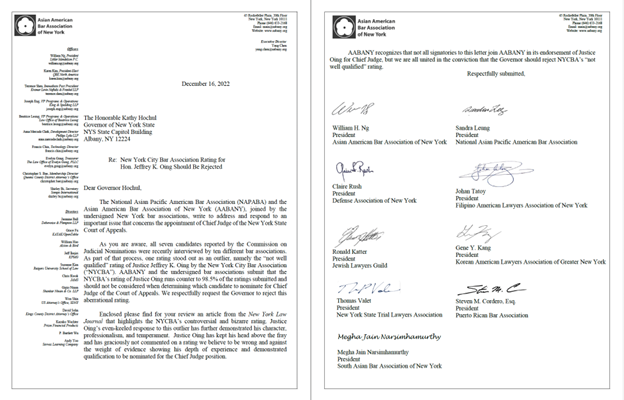For Immediate Release:
Date: August 19, 2020
Contact: Priya Purandare, Executive Director
WASHINGTON, DC — The Coalition of Bar Associations of Color (CBAC) issued the following statement in response to several proposals calling for alternatives to the traditional in-person bar examination used to license new attorneys as a direct response to the ongoing challenges presented by the COVID-19 pandemic:
The COVID-19 pandemic has presented extraordinary challenges to just about every aspect of how we conduct our lives. As lawyers, it is our duty to meet these extraordinary circumstances with grace and swiftness, and to adapt as necessary to ensure continued access to justice and protection of the rule of law. In this spirit, the Coalition of Bar Associations of Color supports ABA Resolution 10G strongly urging all state bars to cancel in-person or potentially vulnerable online administrations of the bar exam and consider adopting alternative methods of licensing new attorneys until a safe and secure method of administering a bar exam is available. This will protect the future of the legal profession and ultimately, our society.
Protection of the public in the administration of justice should remain the top priority of state bars. However, during the ongoing pandemic, traditional methods of testing, like large in-person exams, pose tremendous health risks to test takers and those around them and in many instances would violate government-issued restrictions to large gatherings.
Although we commend the states that opted to cancel in-person examinations in favor of online proctored exams, this method has met significant challenges in its administration. These challenges have included fairness, privacy, and technology concerns with the most recent example being the Florida bar. In Florida, bar examinees were informed of the cancellation of the online exam two days before its scheduled date due to numerous issues with the online proctoring system. No official new date or method of testing has been offered. The Michigan online bar exam system crashed during the examination. The State of Indiana encountered similar technology issues when the program was being tested, and they changed to an open book exam allowing answers to be emailed. The current infrastructure for online testing, which presents significant security concerns and glitches, is simply not workable for an exam of this magnitude and import.
As leaders of the Bar Associations of Color we are particularly concerned with the disparate impact that COVID-19 has had on communities of color and more specifically bar examinees of color. As noted in the report accompanying ABA Resolution 10G on this issue, a recent survey showed “a majority of bar applicants do not believe they have reliable internet access, and that white applicants are about 71 percent more likely to have such access when compared to black applicants.” The same survey noted that the majority of bar examinees “do not have access to a quiet space to take a remote bar examination, with white applicants again being substantially more likely to have access to a quiet place than an applicant of color.” People of color and non-traditional students, who have already faced and conquered institutional challenges to complete their legal education, will face additional barriers in the event of additional delays.
Further delays in licensing attorneys are unfair, placing the careers of thousands of attorneys in limbo. Instead, flexibility from state bars is of paramount importance. Adopting alternatives like open book examinations, extended CLE, a diploma privilege, or a Certified Legal Intern program that leads to a provisional license and then to full licensing within 3-6 months, is the most efficient way to adequately safeguard the futures of all bar examinees and the legal profession as a whole.
Additionally, the delays in testing have further exacerbated the stressful circumstances experienced by bar examinees. Graduates have been preparing since May for one of the most important examinations of their careers. To do so, they have sacrificed their income and time for an extended period. Many are facing severe financial difficulties, have no health insurance, and they are competing for jobs in one of toughest job markets in years. Further delays in licensing will disrupt employment plans and leave thousands of graduates with no way of supporting themselves or their families in a moment of global crisis.
Bar examinees have demonstrated their ardent commitment to the legal profession through their resiliency in the last months. The protection of the public in the administration of justice should be extended to bar examinees by decisive action from the state bars that they will serve in their long and successful careers. We call on state bars to consider the options set forth in ABA Resolution 10G that are most protective of bar examinees, their careers, their families, and the legal profession. Options include but are not limited to allowing diploma privileges, administration of remote open book examinations, and creation or expansion of certified legal intern programs leading directly to licensure, a form of diploma privilege.
###
The Coalition of Bar Associations of Color (CBAC) was established in 1992 and is comprised of the Hispanic National Bar Association (HNBA), the National Asian Pacific American Bar Association (NAPABA), the National Bar Association (NBA), and the National Native American Bar Association (NNABA).




